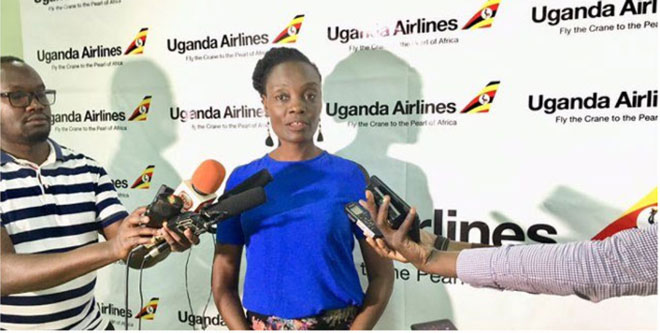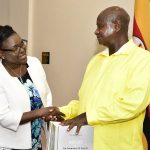The government’s proposal to inject a whopping 120.9 billion Shillings into Uganda National Airlines for the Financial Year 2024/2025 has ignited a fiery debate that has left members of the House Committee on Budget fuming. The flames of discontent were fueled by revelations from the committee on physical infrastructure regarding increased financial support for the national carrier.
The vice chairperson of the physical infrastructure committee, Mr. Tony Awany, presented a report stating that the government aims to boost its funding for Uganda National Airlines by an additional 34.9 billion Shillings, bringing the total injection to 120.9 billion Shillings. The report outlines that these funds are earmarked for covering staff wages and various related expenses.
The allocated funds are expected to encompass a broad spectrum of expenditures, including payments to the Civil Aviation Authority, staff wages, certifications like ISOA and ISAGO, staff training, aviation fuel procurement, aircraft insurance, in-flight catering, ground handling charges, and payments for airport charges in other destinations.
Despite these justifications, a wave of concern swept through the legislators as they questioned the wisdom of funneling such a substantial amount into an entity with purportedly poor profitability. Mr. Dickson Kateshumbwa of Sheema Municipality demanded clarity on the government’s investment, seeking details on shares, short-term, mid-term, and long-term investment plans, and the funding mechanism.
The inquiry didn’t end there. Maruzi MP, Mr. Maxwell Akora, pressed for information on Uganda Airlines’ break-even point and the current fundraising amount. He emphasized the importance of clear figures as a basis for informed decision-making regarding the approval of the funds. Other legislators, including Bugabula North MP Mr. John Teira, voiced concerns over the sustainability of Uganda Airlines and urged the government to explore avenues for self-sufficiency.
Mr. Teira expressed skepticism about the airline’s ability to grow if it continues to seek funds for both operational and capital expenses concurrently. As the debate raged on, some MPs questioned the government’s decision to allocate billions to a single entity while other sectors faced significant challenges.
Mr. Patrick Isiagi, the chairperson of the budget committee, highlighted issues in road construction projects, where foreign entities are heavily involved, leading to increased costs due to imported labor. Despite attempts to persuade the budget committee, Mr. Awany announced that formal responses from Uganda Airlines officials regarding its financial performance would be required.
As the dust settles, the budget committee remains divided, prompting them to convene in a closed-door session for further deliberations. The final decision will be encapsulated in a report to be presented and discussed by the entire House in the coming week.
Tough History
In 2022, Uganda Airlines faced intense scrutiny led by Mr. Joel Ssenyonyi, with CEO Ms. Jenifer Bamuturaki grilled on a staggering Shs498 billion loss in the airline’s initial years. The investigation also delved into concerns about staff salaries and procurement processes that allegedly bypassed legal provisions.




















